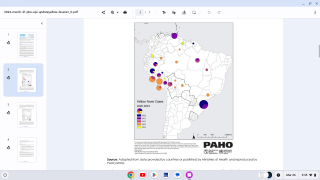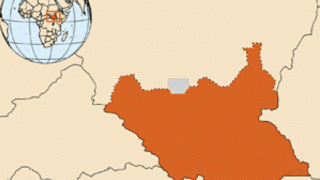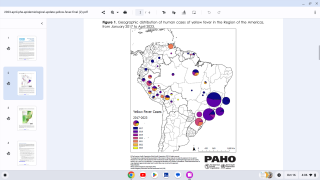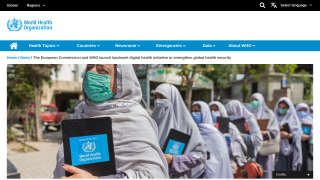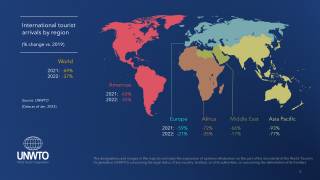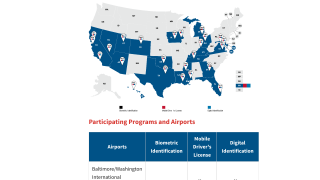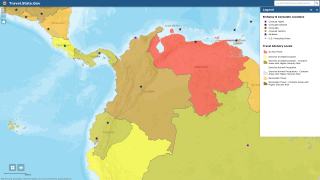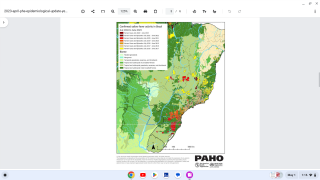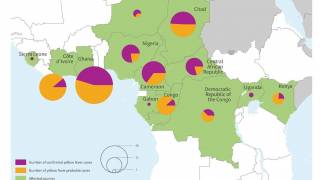Charting Yellow Fever’s Worldwide Travels

The deadly yellow fever virus has the potential to spread into cities around the world, says new research.
These researchers have mapped the projected pathways through which the yellow fever virus could spread worldwide.
Published in the Bulletin of the World Health Organization, this research analyzes the travel patterns of 1.4 billion people flying through commercial airports around the world, and the environmental conditions needed to enable virus transmission within a city, and countries.
Researchers led by Dr. Kamran Khan of St. Michael's reported:
- 89 percent of travelers departing from yellow fever-endemic areas to other yellow fever-endemic areas were required to provide proof of vaccination upon entry,
- Less than 35 percent of travelers departing yellow fever-endemic areas for cities that appear suitable for yellow fever virus transmission were required to provide proof of vaccination upon entry,
- Less than 25 percent of travelers who departed from areas of the world where there is no yellow fever virus in areas that are endemic with yellow fever virus were required to provide proof of vaccination upon entry,
- Brazil, China, India, Mexico, Peru and the United States had the highest volumes of travelers arriving from yellow-fever endemic areas and the largest populations living in cities that appear suitable for yellow fever virus transmission
"Imagine a yellow fever outbreak as a fire," said Dr. Khan, who is a scientist at the Li Ka Shing Knowledge Institute of St. Michael's Hospital.
"Embers can fly off in different directions, and if they land in the right place, they can create another fire. We studied the global conduits through which yellow fever virus can spread and the potential for new yellow fever outbreaks to occur in the world's urban areas."
According to the U.S. Centers for Disease Control and Prevention (CDC), about 15 percent of people who get yellow fever develop serious illness that can be fatal.
Yellow fever virus is a mosquito-borne flavivirus that causes yellow fever, an acute infectious disease. Most patients with yellow fever are asymptomatic.
"Yellow fever vaccine is the best protection against yellow fever disease," says Dr. Martin Cetron, head of CDC's Division of Global Migration and Quarantine.
"CDC urges anyone traveling to a country where yellow fever is circulating to be vaccinated against yellow fever and those people with certain medical conditions shouldn't be vaccinated, so travelers should plan ahead."
Some countries have set up policies requiring international travelers to provide proof of yellow fever vaccination upon entry.
"There are different levels of risk depending on where the person is traveling to and where they are coming from," Dr. Khan said.
In the USA, people who received a yellow fever vaccination after December 15, 2007, must provide proof of vaccination on the new ICVP. If the person received the vaccine before December 15, 2007, their original International Certificate of Vaccination against Yellow Fever (ICV) card is still valid as proof of vaccination.
**Schedule your travel vaccine appointment today **
Yellow fever vaccination is recommended for people 9 months and older who are traveling to or living in areas at risk.
Sanofi Pasteur, the manufacturer of the only yellow fever vaccine YF-Vax licensed in the United States, received approval to make a second vaccine, Stamaril, available to USA residents.
For most international travelers, a single dose of yellow fever vaccine provides long-lasting protection. However, some travelers may require a booster dose, says the WHO.
In the USA, selected pharmacies offer the Stamaril and/or YF-VAX vaccines, as well as other travel vaccines.
The CDC Vaccine Price List provides the private sector prices and general information, and discounts can be found here.
You are encouraged to report any vaccine side effects to the FDA or CDC.
Our Trust Standards: Medical Advisory Committee



